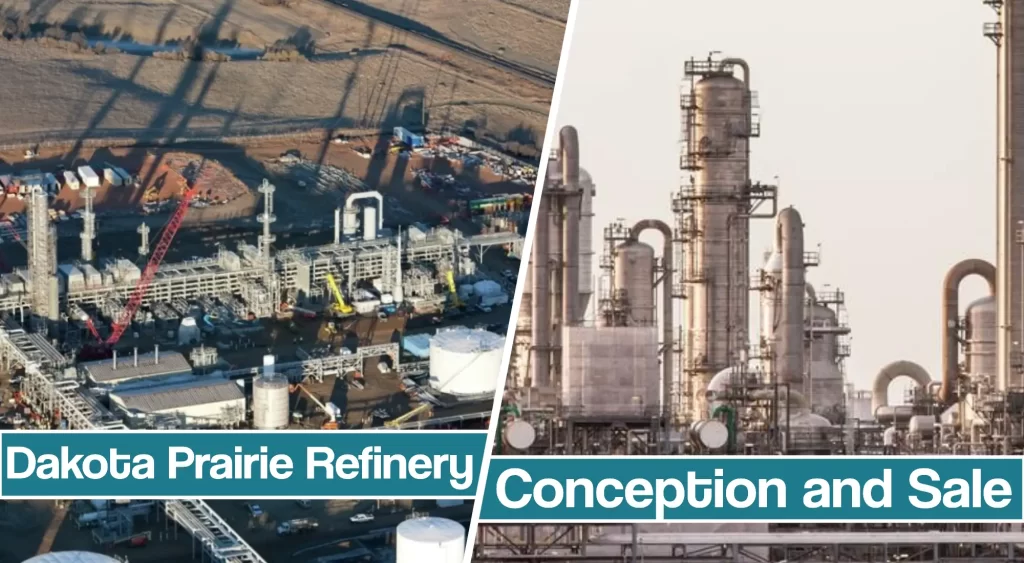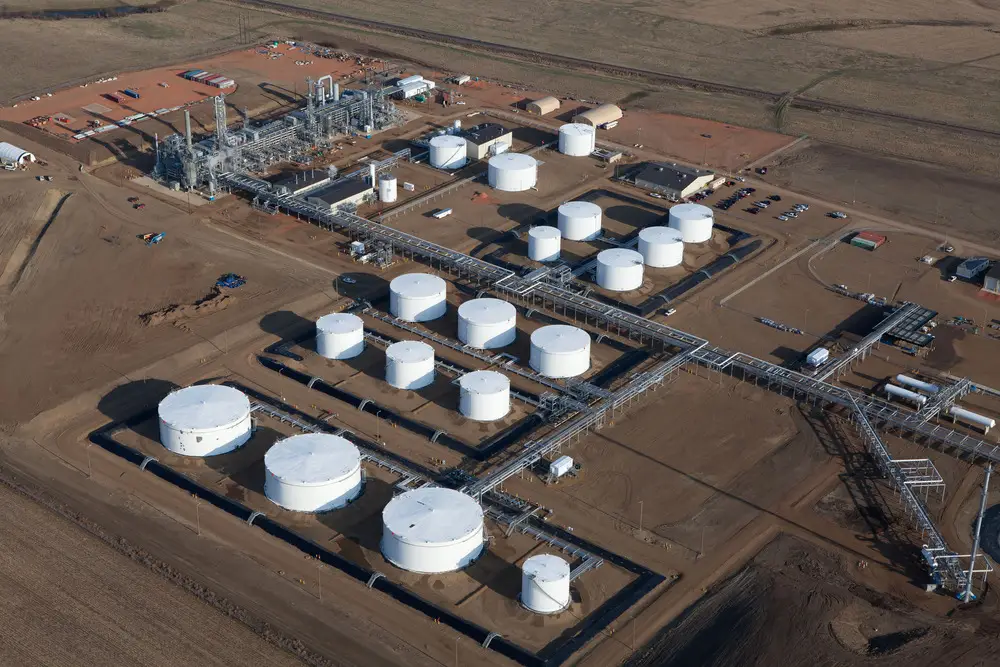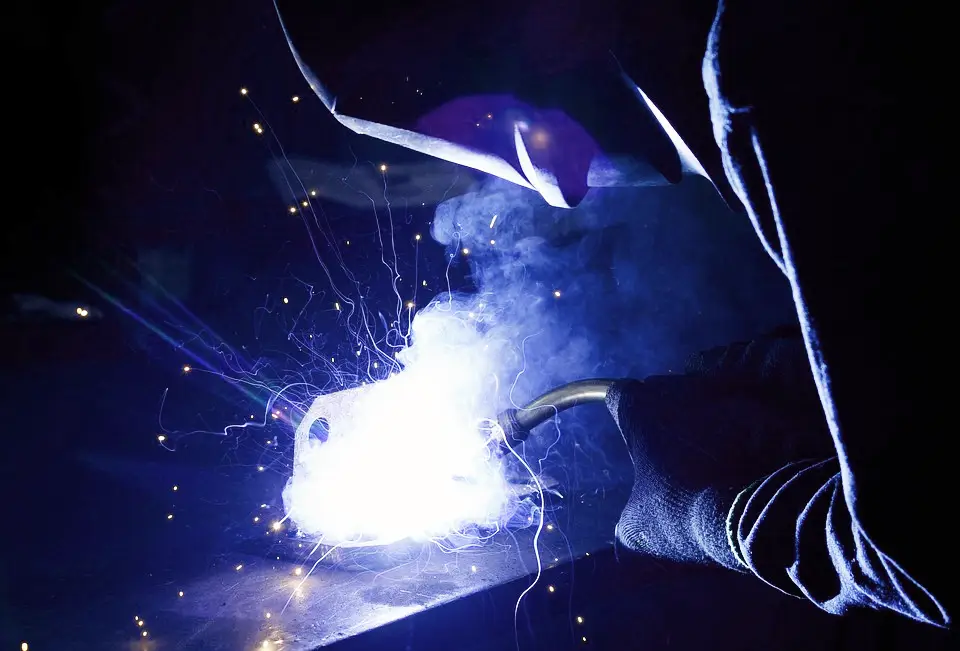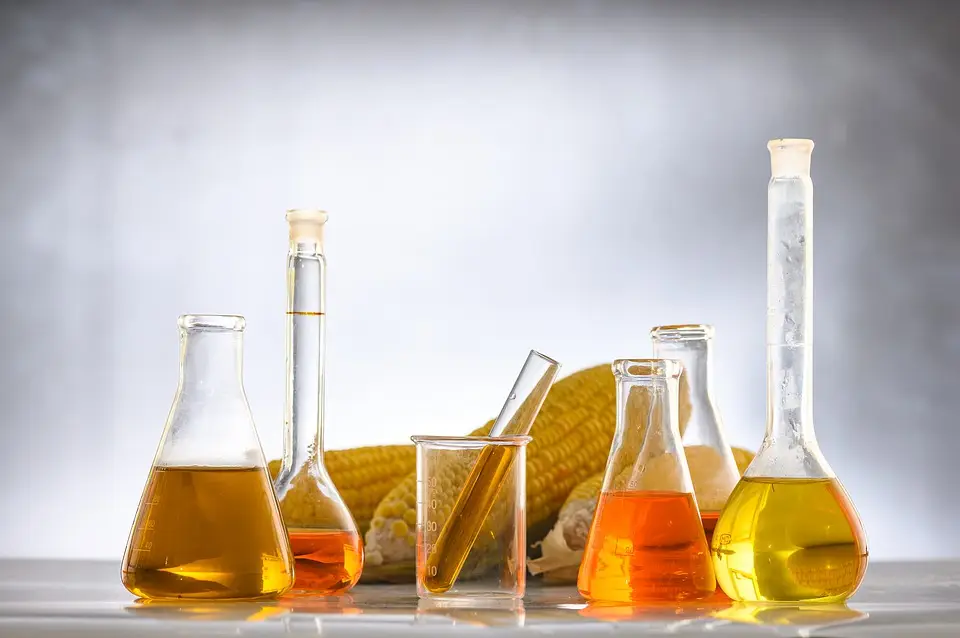Back in 2013, the Dakota Prairie Refinery was a groundbreaking project that sparked a lot of interest in the region.
After all, it was the first U.S. refinery project since 1976.

Data in short:
- First U.S. refinery project since ‘76
- $300-million investment, 20-month project
- Diesel fuel and by-products
- At the time, the refinery was going to fulfill the need of 53,000 diesel fuel barrels a day in the region
- The investment was led by MDU Resources Group Inc. and Calumet Specialty Products Partners L.P.
- The project created more than 800 jobs during the construction and about 100 during the operation
- The refinery was sold to Tesoro Corp.
The Dakota Prairie Refinery Conception
This project started in 2012 when MDU Resources and Calumet Specialty Products signed a letter of interest and invested in the initial feasibility studies and engineering necessary to produce the refinery.
MDU Resources supplies products and necessary services to transport and energy infrastructure companies. They work with regulated utilities, pipelines, exploration and production, and construction materials and service companies.

The CEO of MDU, David L. Goodin noted the support of North Dakota’s governor and state officials to expedite the refinery project. “Their permitting process was rigorous, but at the same time, they helped us identify and solve problems that are involved in a complex project such as this,” he stated.
The Dakota Prairie Refinery was created to support the Bakken region’s rising demand for diesel fuel, and to provide for the industry that relies on trains, trucks, and other vehicles that extract the 50-year supply of oil and natural gas in North Dakota. This 20-month project was proof of the add-on effects of the new oil and gas exploration.
This was the first U.S. new oil refinery since 1976, and it was going to supply the necessary fuel for the developing exploration industry in the Bakken Shale formation. This shale formation is one of several that are significantly increasing the demand for pipeline transport, storage, and processing capacities required to extract the volumes of natural gas.
By-products Of Growth
Besides the fossil fuel, the Dakota Prairie receives by-products that are used to produce lubricant oil and refining chemicals needed for oil-sand processing in Canada.
The Calumet Specialty Products had a limited partnership role in processing crude oil and other feedstocks into solvents, waxes, and lubricants, used in consumer, automotive, and industrial products.
The Sale of Refinery Business
Soon after the initial launch of the new Dakota refinery, it was sold at a loss to Tesoro Corp. due to an oil price slump that happened at the time.
The Tesoro Corp. bought this refinery project because they have an integrated refinery system that includes their other Mandan refinery and others in their network. They wanted to improve the efficiency of the North Dakota refinery with better transportation, utilization, and use of by-products created from oil.
The refinery kept its employees because the new owner still needed everyone to run the operations and keep everything going smoothly.
North Dakota’s Crude Oil Production And Opportunities For Welders
At the time of the conception of the Dakota Prairie Refinery, North Dakota was producing 770,000 barrels of crude oil a day. However, today, North Dakota makes about 1.20 million barrels a day. That’s a significant jump, and the industry is not slowing down.
This means a higher demand for welders working in the oil industry as well. Maintaining and adding new welded elements of oil refineries and gas extraction systems requires qualified and certified welders.

North Dakota is one of the best U.S. states for welders looking to enter pipeline welding. Top welders in North Dakota earn a minimum of $80,000 a year, while the average salary is a minimum of $47,000.
Considering that the need for fossil fuels is rising, and the global energy supplies are not stable enough, welders can rely on their skills in the oil industry and make a living for a long time.
Biodiesel Refining In North Dakota
While the oil business is dominant in North Dakota, we may see a tide starting to change in a more environmentally friendly direction.
Biodiesel refining is done from soy-based products. To produce biofuels, soybean crushing is necessary to receive soybean oil. Biodiesel leaves a positive economic impact not just for energy producers but for providing farmers. The entire region benefits. There is less environmental impact, farmers earn additional 60 cents of value for every bushel of soybeans, and welders and other industry workers increase in demand.

Currently, North Dakota provides incentives for development and facility construction for biodiesel industries. This will encourage new facility growth in the future, which in turn means more jobs for welders. Additionally, these incentives make for a solid agritech business opportunity and will improve competition on the level of soybean production. Such competition will drive innovation, and this again means more jobs for trade workers.
Conclusion
The Dakota Prairie refining was conceived with the right intentions, but due to a slump of oil prices at a time, it was sold by initial investors. Still, it remains operational today and supplies the region with oil and its byproducts.
The oil business in North Dakota is booming and hasn’t reached its maximum potential yet. We may see more refineries get built. But, even as it is, there are many job opportunities for welders, certified welding inspectors, and quality inspectors.
Resources:
- Dakota Prairie refinery celebrates start of construction with groundbreaking ceremony at DigitalRefining
- Dakota Prairie Refinery sold to Tesoro at a loss, hurt by oil price slump at thedickinsonpress.com
- Dakota Prairie Refinery, Stark County, North Dakota at hydrocarbons-technology.com




